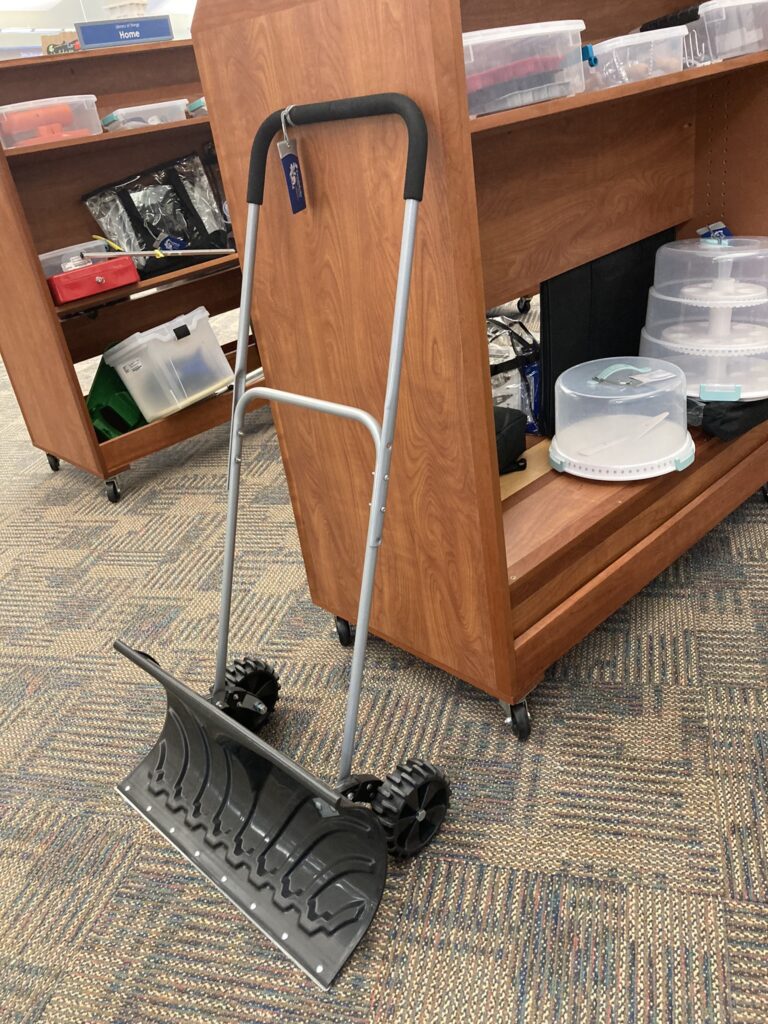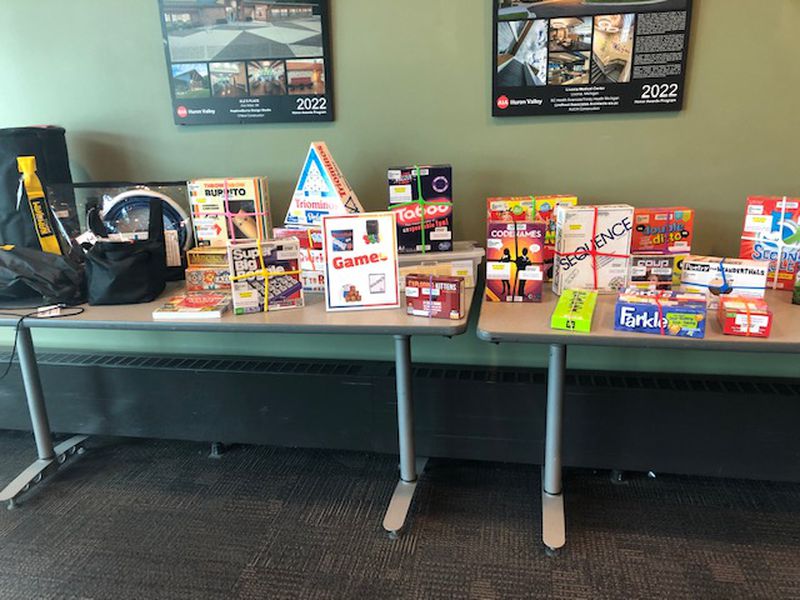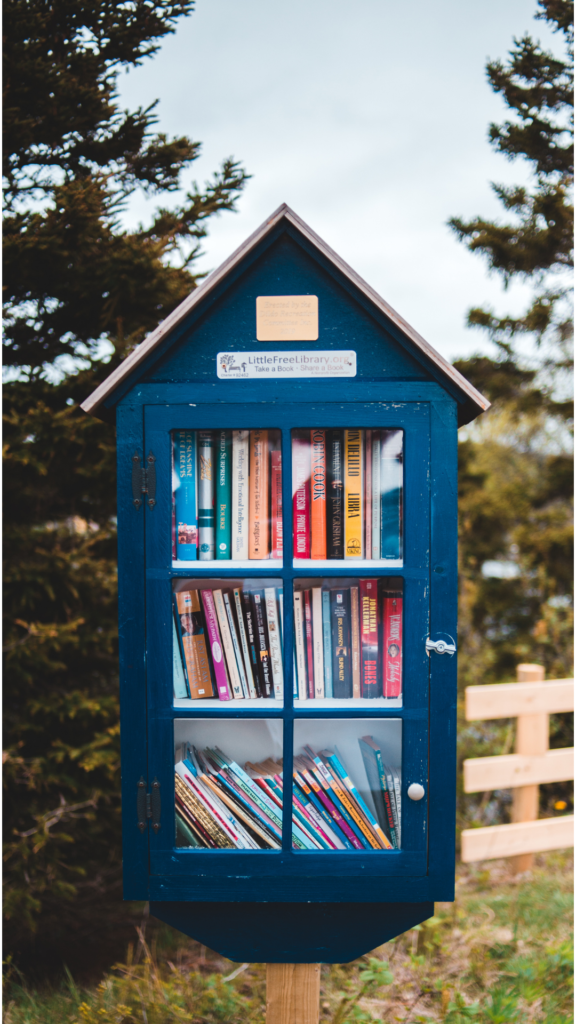
It is a collection of physical objects that people can borrow instead of buying. This can include anything from tools and equipment to games and toys. The goal of it is to reduce waste and encourage people to share resources.

The first official Library of Things as a brand was founded in 2009 in Copenhagen, Denmark. Called the "Borrow Station". Created by a group of artists and designers. The Borrow Station was a success and it inspired other communities to start their own Libraries of Things.
You will find this movement in many parts of the world. In over 20 countries, including the USA, UK, Spain, Ireland, Nigeria, Australia, New Zealand, Kenya, Uganda and more. The concept dates back in many cultures' history [Tool Libraries].
Seattle is home to an old operating tool library set up in the 1970s that began with some University of Washington students wanting to clear out their dorm rooms!
In 2012, the first official 'Library of Things' in the United States was founded near to Seattle. In Portland, Oregon. Called the "Portland Tool Library". It was created by a group of community activists. It was a success and it inspired other communities to start their own Libraries of Things.
There are now over 100 Libraries of Things in the United States, and the number is growing rapidly.
"Libraries loaning “stuff” isn’t a new concept. Framed paintings were available for checkout at the Newark (N.J.) Public Library back in 1904. “Libraries were sharing before sharing was cool.”
Director of the American Library Association’s Center for the Future of Libraries
There are many different types of Libraries of Things. Some run by libraries. Others run by community organizations or businesses. Some Libraries of Things focus on a specific type of object, like tools or musical instruments. Others have a wider range of objects.
**Reduced waste:** When people borrow instead of buy, they reduce the amount of waste that is produced.
**Encouraged sharing:** Libraries of Things encourage people to share resources. This can help to build community and reduce costs. The power of connection can help communities to build ethically.
**Access to new things:** Libraries of Things give people access to new things.
We have listed some here below. You can search online, contact your local library, or ask your community organization.

Arlington Public Library, VA: Lends American Girl dolls. The dolls can be borrowed for a seven-day period and can be renewed up to three times if there are no other holds. The library has 19 different dolls available for loan, and the program is made possible by the Friends of the Arlington Public Library. It might seem unusual at first, but the Arlington Public Library's program to lend American Girl dolls is quite popular and serves several purposes:
Berkelely Public Library, CA: Home to one of the oldest operating tool libraries in the country.
Boulder City Library, CO: Boulder City Library of Things has a collection for the whole family to enjoy.
Brooklyn Public Library, NY: Collection of tools and equipment borrowed for free.
Charlottesville E-Bike Lending Library, VA: Stop guessing and start riding. If you're considering an electric bike purchase but aren't sure where to begin, the Charlottesville E-bike Lending Library provides the perfect solution. This local nonprofit allows you to borrow an e-bike for up to a week, giving you the hands-on experience necessary to make a confident buying decision.
City of Hope Library of Things, CA: Medical equipment borrowed for free. By patients and their families.
Durham Tool Library, NC: Collection of tools and equipment borrowed for free.
Eckhart Public Library, IN: Allows patrons to borrow telescopes.
Emerald City Libraries, WA: Collection of tools and equipment borrowed for free.
Interfaith Community Services, MA: Collection of tools and equipment borrowed for free by low-income families.
Johnson County Public Library, IN: Offers a prom dress and formal wear closet.
Little Free Library, USA: This organization has a network of over 90,000 Little Free Libraries located in communities all over the USA. These libraries are free to use and they offer a variety of books, magazines, and other materials.
Los Angeles Public Library, CA: Offers ukulele kits for loan.

Portland Tool Library, OR: Collection of tools and equipment borrowed for free.
Recommended Reading Library, PA: Has a collection of books, magazines, and other materials borrowed for free.
San Francisco Public Library, CA: Collection of tools and equipment borrowed for free.
Seattle Tool Library, WA: Has a collection of tools and equipment borrowed for free.
Trinity Tool Library, CT: This library has a collection of tools and equipment borrowed for free.
University of California, Berkeley, CA: This university has a collection of tools and equipment borrowed for free by students, staff, and faculty.
University of Washington, WA: This university has a collection of tools and equipment borrowed for free by students, staff, and faculty.
This is just a small sample of the many Libraries of Things that are available in the USA. We are putting together a comprehensive list for each state and have started with Library of Things New York.
Libraries of Things are a great way to reduce waste, encourage sharing, and access new things. If you are looking for a way to be more ethical, sustainable and to save money, do consider using one.